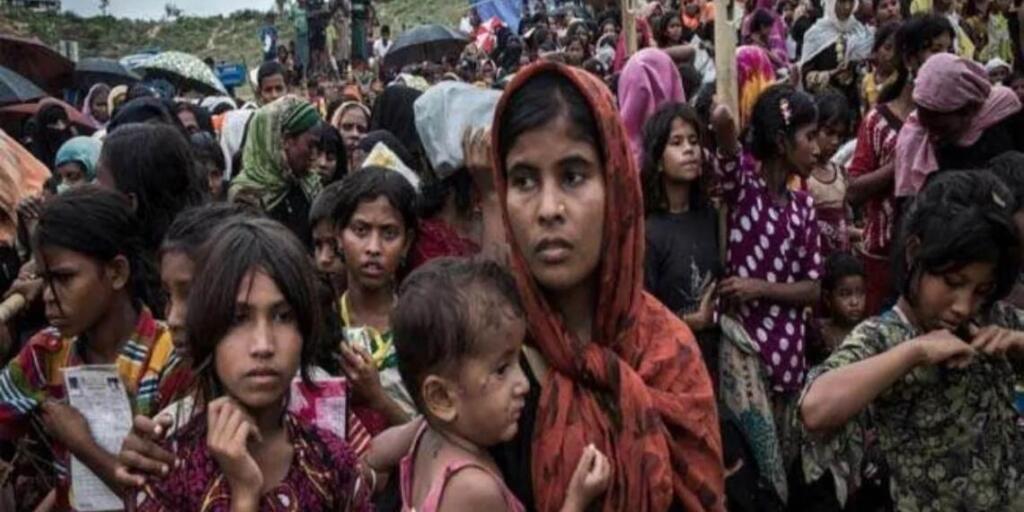The problem of illegal infiltrators in India is becoming increasingly severe, particularly with the rise in the number of Rohingya infiltrators from Bangladesh and Myanmar. These individuals, fleeing persecution and statelessness, often enter India through human trafficking networks. Their presence poses a significant threat not only to India’s security but also to its social structure. The influx strains resources, contributes to illegal activities, and disrupts local communities. Additionally, the cultural and demographic changes brought about by the settlement of these infiltrators can lead to social tensions and unrest. This multifaceted issue requires urgent attention and a coordinated response to safeguard national security and social harmony.
Magnitude of the Infiltration Problem
Currently, it is estimated that there are over 40,000 Rohingya infiltrators in India. Additionally, more than 200 Rohingya Muslims are entering India illegally each month. These infiltrators are being settled in various parts of the country, including more than a dozen states, facilitated by international human trafficking gangs.
NIA’s Actions
The National Investigation Agency (NIA) recently arrested Jalil Mian, the mastermind of a major human trafficking gang. This gang primarily operates to smuggle Rohingya people from Myanmar’s Rakhine province into India. Over 900,000 Rohingyas, who were stripped of citizenship by the Myanmar government in 1982, have taken refuge in various countries, with Bangladesh and India being prominent hosts.
Key Members of the Gang
Jalil Mian, an associate of the gang’s chief Jibon Rudra Pal alias Suman, had previously been apprehended by the NIA. Other gang members, Jaj Mian and Shanto, remain at large. The NIA has arrested 29 members of this gang and attempted to arrest Jalil Mian in November 2023, though he had escaped at that time.
Fake Documents and Settlement in India
Rohingya Muslims are being provided with fake documents and settled in India under packages costing between 1 to 2 million rupees. The central government has declared them illegal immigrants and a threat to national security, although the United Nations considers them refugees. These infiltrators are also being trained in languages like Hindi and Assamese to avoid detection based on their accent.
Camps and Population Growth
Several camps have been established for Rohingya infiltrators in cities like Delhi. Over the past two years, the number of Rohingya Muslims in India has doubled. According to the central government, there are no camp arrangements for Rohingya refugees in the country. In the Muslim-majority region of Jammu and Kashmir, their population is nearly 10,000.
Participation in Crimes and Protests
Rohingya infiltrators have been found involved in various crimes. They were also seen participating in large numbers in protests against the Citizenship Amendment Act (CAA) in areas like Shaheen Bagh and Jafrabad.
Population and Security
As the world’s most populous country, India already faces the constant threat of terrorist attacks, and the presence of Rohingya infiltrators presents a serious challenge. The state of Tripura, bordering Bangladesh, has also faced increasing infiltration issues. In the past 16 months, 1,018 infiltrators were caught in Tripura alone, including 93 women and 24 children. In 2023, the Border Security Force (BSF) apprehended 744 infiltrators, compared to 369 in 2022 and 208 in 2021.
Spread Across India
The spread of infiltrators is not limited to border states but has also been recorded in distant areas such as Chennai in South India, highlighting a serious threat to national security.
The problem of Rohingya infiltrators in India is complex and serious, and it must be considered critically from the perspective of national security and social stability. Solving this problem is possible only through stringent government actions and international cooperation.
Conclusion
In conclusion, India’s challenge with Rohingya infiltrators demands urgent attention due to its implications for national security and social cohesion. The increasing numbers and involvement in illegal activities underscore the severity of the issue. Effective measures, including stringent law enforcement and international cooperation, are crucial to address this complex problem. Balancing humanitarian concerns with national security imperatives remains a critical task for India. As the situation evolves, concerted efforts are essential to mitigate risks posed by illegal infiltration and uphold the integrity of India’s borders and societal fabric.
ALSO READ: The Name of Babri Masjid has been Removed from the NCERT Class 12 Textbook
